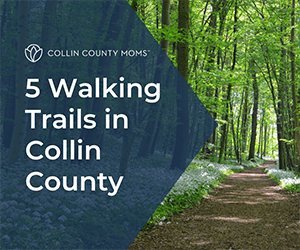 Whether you’re expecting your first baby, your fifth, or you’re contemplating having kids, preventing or overcoming postpartum depression is a discussion we need to have as mothers. It can be confusing to discern between the “baby blues,” and real, lingering depression.
Whether you’re expecting your first baby, your fifth, or you’re contemplating having kids, preventing or overcoming postpartum depression is a discussion we need to have as mothers. It can be confusing to discern between the “baby blues,” and real, lingering depression.
The term, “baby blues,” refers to the period of time after a baby is born when the mother experiences more mood swings as her hormones readjust to life outside pregnancy. If these troubling emotions persist for more than two weeks, it’s worth looking into, as these symptoms can be a sign of postpartum depression.
However, many variables in the mother’s life could contribute to the difficulty of adjusting to the big change of having a new little family member. Even if you don’t develop depression, these tips can aid your transition into motherhood.
>> Sign Up :: Get Collin County Moms News and Events in Your Inbox <<
1. Prioritize Yourself
It isn’t easy to prioritize your needs and wants when you’re so focused on the new baby. If you’re not getting any breaks or taking time to enjoy things that you used to, you’re at risk of losing yourself in this 24-hour job.
- You need friends and medical professionals caring for you.
- You need wholesome nutrition, rest, and even hobbies to sustain you.
- You need to feel secure in your relationship with your partner. Take time to invest in yourself and the relationships that fulfill you.
>> RELATED READ :: Pregnant and Postpartum Mental Health Challenges and Risk Factors <<
2. Unite with Your Partner
Many women express feelings of anxiety when it comes to their partner caring for baby. Turn this anxiety into a teaching opportunity. Teach your partner how you care for baby and manage his or her newborn routine. With communication and patience, you can share what is most important to you, then observe your partner both being a parent and gaining insight into your daily load.
Having him or her understand more about what you do and deal with will strengthen your relationship. Plus, this will give you breaks as he or she gains more practice. Afterall, you are both learning how to be parents to a new baby.
>> RELATED READ :: I Hated the Newborn Stage <<
Similarly, it’s common to fear your partner just won’t do it “right,” but this thinking might make you feel even more isolated. If you let your worries get in the way of allowing him or her to take part in parenting, you will feel more alone and less connected down the road.
Instead, share your feelings and involve your partner in the process. This will foster both an understanding and appreciation for you and where you are coming from. Do these things to prevent feelings of resentment that can stifle your connection when already feeling depressed.
3. Build the “Village”
When your partner is busy, you need dependable friends and family members you trust to care for your child or handle the chores piling up at your house. These people are your “village.”
However, the village that mothers are supposed to magically have the moment they birth a child does not always come as easily as we imagine. Some mothers don’t have that support system and must take leaps of faith asking help from people they aren’t sure will want to do it. It takes time to develop and maintain friendships, especially in the post-pandemic age.
Another way to build your village is to meet other moms that share your feelings. Attend a therapy group for women experiencing postpartum depression. This can be a game-changer. In these groups, you share how you feel and listen to other women share similar experiences. Being connected to some sort of community can lighten any darkness along your motherhood journey and is a powerful remedy for depression.
>> JOIN TODAY :: Collin County Moms Community Groups <<
4. Get Educated
Knowledge is power. Prior to giving birth, educate yourself on the many causes of postpartum depression and the various forms of treatment. Learn about the contributing factors that you can work on in your life, and set aside time to invest in your mental and physical health.
Reading birth stories and watching videos about women sharing their experiences can help you know what to expect at the birth. Many mothers develop postpartum depression because their birth did not go as planned, or it was a traumatic experience. It is common for a mother to feel powerless or unprepared for their birth experience.
>> RELATED READ :: Maternal Mental Health Tips and Local Resources <<
To mitigate these burdensome emotions, take a birthing class during your pregnancy. The main benefit of these classes is you more fully understand what is happening in your body during both pregnancy and labor. With all the changes happening in your body, this knowledge lessens the dysphoria you may have when you look in the mirror because you feel more appreciation rather than unfamiliarity.
The classes also teach you about pregnancy complications and interventions. You will learn if and when you need special medical attention prior to labor or at showtime.
You can even learn how to breastfeed in these classes. They’ll give you an introduction into latching, tips for milk production, where to find lactation support, and more. Breastfeeding doesn’t come naturally to all mothers — or babies, for that matter — and that’s okay! But simply knowing that can help you feel less alone when you have to go through it.
>> RECOMMENDED RESOURCE :: Breastfeeding Resources in and Around Collin County <<
 5. Let Go of Perfection
5. Let Go of Perfection
You’ll feel like there’s never enough time to manage all this, but you’ll feel much better if you celebrate the small things. The dishes are still sitting in the sink, but your baby met a milestone today. The house is so unorganized and untidy, but you went outside and brought baby to a new place for the first time.
You are doing it, and you are not alone! In all the history of humanity, every woman who became a mother didn’t become one without struggle. We are right here with you through every stage, especially postpartum.
>> LISTEN :: Mom & Mental Health :: Momfessions Podcast <<
6. Reach Out
If you feel like you’re falling deeper into isolation, reach out to a friend. The sooner you reach out, the easier it gets. If reaching out and opening up is too scary to think about, go online and join a supportive social media group. Read posts and comments, and you’ll soon learn that every mom needs help. They are all asking questions and looking for advice. You are not the only one who feels this way. Take comfort in that.
Postpartum is a challenging season for all mothers, but there are small-but-mighty ways to cope with postpartum depression and anxiety. Reconnect with yourself and your partner, find community even if it’s online, and learn about the incredible changes taking place in your body and baby. Try one of these ideas and see how it eases the big feelings and helps you navigate this road.














